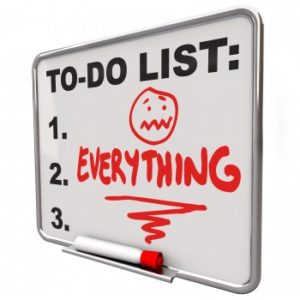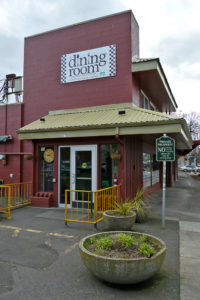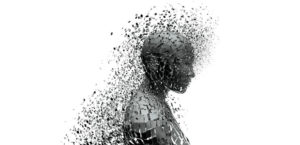Category — Life
Why I am not a cynic
I am not a cynic…
because so many people before me have done powerful and important things, have fought for and won freedom, have discovered stars and cured diseases, built libraries and written books, grown food and fed the hungry, made art and created music, raised kind and loving children.
because underneath the ugliness there is such beauty, such astonishing beauty, and it is always there—the clouds making pictures in the sky, the soft hiss of rain, a ripe peach. And the ugliness is temporary, and the beauty is forever.
because awareness of the ugliness and evil, the cruelty, inequality and pain is not the road to despair. It is the road to action.
because I have seen that great change is possible, that the unloved can love, that the greedy can be generous, that people who do terrible things can remake themselves into good people.
because I believe not in pie-in-the-sky optimism, not in the glass-is-half-full optimism. I believe in self-efficacy. I believe that sometimes the glass is half-empty. And sometimes it is completely empty. But I believe I have the power to refill it. That we have the power to refill it.
That we are, at this moment, refilling it.
Wait! Stay around for this history lesson:
Cynicism was a school of thought in ancient Greece. For the Cynics, the purpose of life was to live virtuously by rejecting all conventional desires for wealth, power, sex, and fame. Instead, they were to lead simple lives free from all possessions. Cynicism gradually declined and finally disappeared in the late 5th century. By the 19th century, an emphasis on the negative aspects of Cynic philosophy (that is, what was being rejected rather than what was being embraced) led to the modern understanding of cynicism to mean an attitude of scornful or jaded negativity, especially a general distrust of the integrity or professed motives of others. It is the attitude and mindset promoted and encouraged by the man who sits in the Oval Office. Distrust of everyone and everything, distrust of scientists and artists, educators and philanthropists, inventors and activists creates powerlessness and despair. It is easy to rule a powerless people.
March 28, 2018 2 Comments
There’ll be days like this
When it’s not always raining there’ll be days like this
When there’s no one complaining there’ll be days like this
When everything falls into place like the flick of a switch
Well my mama told me there’ll be days like this
Actually, my mother was more of a doom-and-gloom, escape into the world of a big fat novel while nursing a vodka tonic kind of person. So maybe she wasn’t the one who told me that, occasionally, unbidden, there could be these joyous moments. I may have discovered this all by myself.
When it’s not always raining there’ll be days like this
But today, in fact, it IS raining.
When there’s no one complaining there’ll be days like this
And I AM complaining: My shoulder aches from yesterday’s bench presses. I am facing a killer manuscript deadline. I just did a calorie-count on the handfuls of gorp I’ve been throwing back as I grade student papers, and I wish amazon could deliver, by drone, right now, a stomach pump. Oh, and I think I am developing a Plantar’s wart.
Yet.
I am filled with joy. (In those small pockets of empty space not taken up by the gorp, that is.)
It is a good day. For no good reason.
Which is the best kind of good day. May you have one of these soon.
Last word goes to Van the Man, writer of the lyrics I began with:
When all the parts of the puzzle start to look like they fit it
Then I must remember there’ll be days like this
March 14, 2018 3 Comments
Quiet
On the walk from my apartment to campus, I pass by the home of man I can hear but cannot see. He lives in a make-shift tent—more rope and tarp and tattered blankets than Coleman—strung between bare trees on a small plot of level ground cut into a steep embankment above the Burke Gilman trail. His home can’t be seen from the road above and, when the trees leaf out, it won’t be seen by people like me, walking or biking the trail.
Most mornings, when I get within 50 yards his home, I can hear him shouting. He is very loud. It’s hard to describe these wordless outbursts. The first time I heard him, I heard anger, and I was scared. I cast glances up the embankment and walked faster, hurrying past his place, looking to see if there were other people down the trail in case I got in trouble. Nothing happened. He didn’t emerge from his home. I heard him the next morning, the one after that, and after that, and after a while, I didn’t hear anger any more, and I wasn’t scared. I heard frustration, and then I heard pain. And today, I heard words.
“Please leave me alone,” he yelled from inside his tent. Then “Please stop talking to me.”
I stopped on the path to see if anyone was up there bothering him, encroaching on his patch of land. There was no one.
“Please stop talking to me,” he yelled, again and again. And I thought of all the voices he must hear. And how he, like all of us, yearns for a quietness of the mind, a calm place to reside inside our heads. But that for him, there was no such place.
*The image I am using is not of this man’s home. I felt that taking (and I use that verb purposely) that photograph would be an invasion of his privacy. The image I used is one that appeared elsewhere, but it approximates the feeling of his place.
Statistics are hard to come by and can be massaged in many ways. By some accounts, Seattle is the 16th most populous city in the U.S. with the 3rd highest population of unhoused.
March 7, 2018 No Comments
I hate FaceApp
File this one under “walk your talk.”
In the seminar I’ve been teaching at University of Washington this winter, we’ve been taking about, reading and creating “empowering narratives.” These are stories that show people working on solutions, stories that present the idea that tough problems can be and are being worked on, that what people do (or don’t do) makes a difference. These narratives appeal not to fear—Oh my god, the opioid crisis! Oh my god so many guns!—but to hope, to the power of action and involvement.
We are also talking about the parallel to this in the advertising world, “Empowerment Marketing.” This is a message strategy that appeals (that is, tries to sell stuff) to people by tapping to their higher instincts: the desire to connect, to be of use, to contribute to the society, to be part of a solution. The way marketing usually works is to appeal to our baser instincts: greed, vanity, self-interest, fear, insecurity. The idea of this pervasive “dark marketing” is to tell us that we are substandard, that we are missing out, that we are lacking…and then to present a product or service that will make us better, shinier, sexier, etc.
So I know all this. I’ve read books about this. I’ve studied the research. I lecture about this. I talk the talk.
Enter FaceApp.
I upload a photo of myself, and FaceApp shows me a gorgeous version of myself that I never before imagined. All of a sudden, I see my real self as…lacking. Okay, kinda ugly. I look at my FaceApp self: that nose! I love that nose! I now am insecure/ vain about my actual nose. I could buy that FaceApp nose! I could spend $6000 and get that nose! And those smoky eyes! Why aren’t my real eyes like that? My real eyes are…lacking. But I can buy cosmetics! I can buy a “make-over” at a salon! I can have those eyes. And don’t get me started about lip plumping.
Whoa.
I have been effectively Dark Marketed. Disempower Marketed. I’ve been ensnared by appeals to my insecurity and vanity. And I know exactly what’s happening. And I fall for it anyway.
But I don’t fall so far that I’ve scheduled a rhinoplasty.
However, this morning, for the first time in, like, a year, I applied mascara.
February 28, 2018 8 Comments
Biting off more than you can chew
 What happens when you bite off more than you can chew?
What happens when you bite off more than you can chew?
You have three options: You choke on it. You spit it out. You take a very very long time chewing it.
Why is this relevant? Because this winter I bit off more than I could chew. Opportunities arose to which I could not say no. Opportunities arose to which I could say no, but did not. Deadlines were all of a sudden a lot closer than they used to be. Things happened. Good things and bad things. Unexpected things. People needed me.
I started to choke. This made doing what I had to do – plus what I wanted to do – even harder than it already was. I didn’t have the luxury of or patience for long-term mastication. Commitments. Deadlines. People depending on me.
And so I spit out something. And that something was this blog. What I mean is that I stopped writing and posting. Of course I was flooded with messages from bereft readers, people who planned their entire week around my Wednesday postings, people on the edge of their various seats, holding their collective breaths waiting for witty, insightful commentary, but then settling for my posts. I feared all this frenetic traffic would break the Internet. Alas, the Internet abides.
I think perhaps I missed you (at least I missed writing these weekly posts) more than you missed me. Regardless, I will be back, seat of the pants to seat of the chair (actually, I write standing up, but I love that expression) in mid-March.
In the meantime: Chew with your mouth closed!
February 21, 2018 2 Comments
The Power of Place
I am about to head off to my regular Wednesday shift at Food for Lane County’s Dining Room, a restaurant-style (as opposed to soup-kitchen style) facility that feeds up to 300 people a day. The people who come – many but not all are unhoused – sit at tables set with silverware and cloth napkins and are served hot meals by a volunteer wait staff who takes their order (meat or vegetarian? Full plate or—my least favorite request—no vegetables? Food allergies?), brings condiments, serves coffee and dessert. There is almost always live music.
I’ve been volunteering for close to four years now, and during that time I’ve thought a lot about the power of place. But until today I’ve thought only about the power of The Dining Room in the lives of the diners, the momentary oasis provided by this calm, warm, friendly, non-soup-kitchen place and the effect this has on those who sit and eat.
There is the blessed experience of sitting in a warm place on a cold day, sitting in a dry place on a wet day. There is the immeasurably enriching experience of being acknowledged not avoided, being looked at not looked away from. There is being asked what you would like. There is being told yes. There is being served. There is the comfort of a full stomach. There is the experience of being in a place suffused with politeness and respect.
Today I am thinking about the other side of this power of place: The power of The Dining Room in my life. This is a place where I get to work along side good people, not “do-gooders” who are oh-so-proud of themselves for their little volunteer gig, but upbeat, hard-working, good-humored people who care about other people, who care about their community, who transform compassion into action, who are in it for the long haul.
It raises my spirits, however low they may be — and they have been lower this year than ever before – to spend time in this place. It nurtures my belief in my fellow humans. Being surrounded by good people makes me a better person.
December 27, 2017 2 Comments
#NotMe
Well, yes, of course, my ass has been goosed by strangers on the IRT. (Whose hasn’t?) And I once worked with a guy (now a big-shot lawyer, then neither) who made eye contact only with my chest when we talked. (I countered by staring only at his crotch. This made him uncomfortable. Our conversations became infrequent.) But in all my years of working in mostly male-dominated workplaces with (except for three years) male bosses, I have never been sexually harassed. I have never been groped, pawed or touched anywhere questionable. It has never been suggested that I perform any acts other than the ones I was hired to perform.
As I read about all the women (and girls) out there who have experienced sexual harassment in its various awful and disturbing forms, I’ve had these reactions.
ONE: Jesusfuckingchristohmighty, isn’t life tough enough without going out of your way to be an asshole? Are there really these many men who lack basic decency, civility and respect? Are there really these many men who believe they are entitled to manipulate, belittle, demean, harass and violate women?
TWO: What would their mothers say? Or their sisters? (I’m not including “wives” because I don’t want to imagine that these men, after doing what they do, after saying what they say, actually come home and show their faces to a female human. Or a male human. Or their dog.
THREE: Wow am I ever lucky! I rejoice that I have had the great good fortune to have worked with non-harassers. As if this is “good fortune” rather than what should be normal, everyday life. As if simply not being a victim is a reason to rejoice. Yay! I went out into the world today, and no one masturbated in front of me or pressured me to carry their baby in my womb! Life is sweet.
And, I am so very sorry about this one, FOUR: The full weight of the sexist culture crashes down on me and I actually think, if only for a moment: What, I wasn’t pretty, sexy, alluring enough to attract this repulsive behavior? What’s wrong with me? Unbelievable, right? The flipside of I was raped because my skirt was too short.
So I guess, after all #metoo.
December 13, 2017 3 Comments
Becoming inVISIBLE
A few nights ago I suffered through one of those seemingly interminable, low-level stress dreams that sometimes afflict me. This one was about losing my purse. I was standing at a counter picking up tickets for a performance of (you guessed it!) The Nutcracker. I placed my purse on the counter and momentarily forgot about it while involved in the ticket transaction. When I looked over, it was gone. Thus ensued a long, boring, stressful search for purse. After watching me hunt high and low, an employee told me he removed the purse from the counter and put it under a desk. Great, I said. Thanks.
But the employee did not want to give me back my purse until I “proved” it was mine. I had to detail for him, quite precisely, various items in the purse. I would tell him one thing—my key chain—and he’d then ask for another. My Snap Fitness entry card. My packet of g.u.m soft-piks. My ear buds (What brand? he asked. I didn’t know. He frowned.) My Swiss Army knife. What else? What else? This went on for a long time. Finally he let me have my purse. End of dream.
I thought about the dream a lot during the day. It could be just a generic stress dream. But the more I thought about how it felt to have to prove that what was mine was mine, the less generic and more meaningful the dream became.
The meaning? Here goes:
It seems to me that I am now at a point in my life when I shouldn’t be required (or forced) to “prove” my identity, or prove my own worth to others (like the guy in the dream). I have grown into who I am. I have spent a number of decades growing and learning and doing what I do. When I was younger, a bright young penny who knew so little, who understood so little, I was noticed, and the light shone down upon me. Now, knowing so much more, having done and lived and learned so much more, I join the ranks of the Invisible and the Overlooked, the ones — we “older” women — who have to prove we still have it. About whom it is assumed that we have settled into complacency, that we do not burn with creativity and passion, that we are not ignited by new ideas, that we are no longer vital and vibrant and alive.
Guess what, you overlookers, you nay-sayers who put up barriers, you sexist ageist assholes (and especially those who pretend they aren’t)? You couldn’t be more wrong.
And also: FUCK YOU.
December 6, 2017 4 Comments
Tell me a (Nutcracker) story
(American Ballet Theatre/ Brooklyn Academy of Music)
No sooner do I settle myself in when a big guy, burly, bald and beer-bellied, starts to squeeze by to take the seat next to me. I get up to move. “Naw,” he says, dripping Brooklynese. “Doan move. I ain’t as trim as I usedta be, but I’ll get by.” And he does. Then, after catching his breath, he engages me in conversation as if we’re old friends. In the less than five minutes before curtain time, I learn the following: His name is Victor LaRossa and, except for two years in Vietnam in the late 1960s and nine months in upstate New York when he tried to “find myself aftah my first marriage,” he has lived all his life in Brooklyn. He’s never seen the Nutcracker or any ballet. His wife – “hey, Joanie, meet this nice lady,” he brays to the woman on the other side of him – got the tickets from a woman whose kid the wife takes care. “But cultcha, ya know. It can’t hurt,” he says. I love this guy. This guy is why The Nutcracker is the most popular ballet in America.
(New York City Ballet/ Lincoln Center)
At intermission, the elegant lady sitting behind me asks, in a southern drawl, whether I am reviewing the ballet for a newspaper. She has observed me scribbling notes during the performance. She’s just in from South Carolina to take her daughter, an NYU film student, to see the performance. They’ve been “nutcrackering” together, as she puts it, for twenty years, including four years when the daughter was a mouse in the local production. “I worked back stage,” the mother tells me. “I loved every minute of it,” she says. The daughter leans into her mother, gives her a little shoulder bump.
(JFK-SFO)
The next morning, hoping to beat the worst of a snow storm that seems to have followed me since Chicago, I am on the plane out of JFK headed for San Francisco. Sitting next to me is a handsome, strapping guy wearing worn, top-quality cowboy boots. It turns out he is a national rodeo clown. Who’s seen the Nutcracker. (Of course, I ask.) His mother took him to a performance by the Tulsa Ballet Company (he grew up on a ranch outside of town) when he was twelve. There’s more. He took his first girlfriend on date to the Tulsa Nutcracker. “I bet that impressed her,” I say. “Well,” he says, in that laconic way cowboys have, “it was kind of a goodbye present. I broke up with her the next week.” I’m thinking: If a rodeo clown sitting next to you on a plane has a Nutcracker story – actually two — Does that mean everyone has a Nutcracker story?
excerpted from Chapter 1: The Binge
Raising the Barre: Big Dreams, False Starts and My Mid-Life Quest to Dance The Nutcracker. Now in paperback!!
November 29, 2017 No Comments
We are not the worse of us.
We are the best of us.
Amid the rancor and fear, the bitterness and contempt, the unleashed anger and ginned-up anxieties, the harassment, the hate speech, the disrespect, the deplorable choices and dishonorable actions, the violence, the amorality, I want — I need — to remind you, to remind me, there is goodness and generosity in us. There is compassion and good will. There is understanding and empathy. There is kindness.
For the past two and a half years, I have been facilitating a writing group in prison. The writers are all serving life sentences. They all did terrible things. In writing about their lives, their experiences, what they have learned, how they have changed, what they hope for, they tell me, almost with one voice: I do not want to be known only for the worst thing I ever did.
And that’s how I feel about my country right now. I do not want us to be known only for this hate-filled moment, for this resurgence of bigotry, for this mockery of values, for this worst thing.
I want us — you and me, our communities, the millions of our compatriots — to be known for our best instincts and our best intentions, for the everyday lives of inclusion and kindness we live, the rich, diverse, multicultural communities we foster and inhabit, for what we teach our children, for those actions that speak louder than words: the shelters and clinics and food banks we support, the legislation we fight for, the way we stand up for who we are, the rights and reforms we dedicate ourselves to, the deep and enduring connections we forge with each other, with The Other.
The most well meaning of us have done wrong. We have said yes when we should have said no. We have said no when we should have said yes. We have remained silent when we should have spoken. We have self-medicated rather than face our own shit. And worse. There are those who do not mean well at all, and the damage they have inflicted and continue to inflict to individuals, to families, to communities, to our country is so scary, so painful, so disheartening that it is easy to give up hope. But we are not the worst of us. We are the best of us. This is what I am giving thanks for on Thanksgiving 2018.
November 22, 2017 2 Comments














